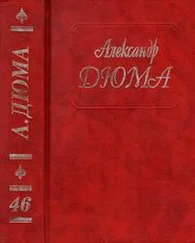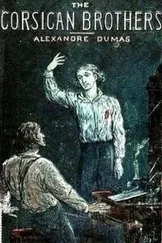Александр Дюма - The Conspirators
Здесь есть возможность читать онлайн «Александр Дюма - The Conspirators» весь текст электронной книги совершенно бесплатно (целиком полную версию без сокращений). В некоторых случаях можно слушать аудио, скачать через торрент в формате fb2 и присутствует краткое содержание. Год выпуска: 2014, Издательство: epubBooks Classics, Жанр: Историческая проза, на английском языке. Описание произведения, (предисловие) а так же отзывы посетителей доступны на портале библиотеки ЛибКат.
- Название:The Conspirators
- Автор:
- Издательство:epubBooks Classics
- Жанр:
- Год:2014
- ISBN:нет данных
- Рейтинг книги:3 / 5. Голосов: 1
-
Избранное:Добавить в избранное
- Отзывы:
-
Ваша оценка:
- 60
- 1
- 2
- 3
- 4
- 5
The Conspirators: краткое содержание, описание и аннотация
Предлагаем к чтению аннотацию, описание, краткое содержание или предисловие (зависит от того, что написал сам автор книги «The Conspirators»). Если вы не нашли необходимую информацию о книге — напишите в комментариях, мы постараемся отыскать её.
The Conspirators — читать онлайн бесплатно полную книгу (весь текст) целиком
Ниже представлен текст книги, разбитый по страницам. Система сохранения места последней прочитанной страницы, позволяет с удобством читать онлайн бесплатно книгу «The Conspirators», без необходимости каждый раз заново искать на чём Вы остановились. Поставьте закладку, и сможете в любой момент перейти на страницу, на которой закончили чтение.
Интервал:
Закладка:
This was a reason for the duke to employ him a second time. This time Vendome was just going to sit down to table, and Alberoni, instead of beginning about business, asked if he would taste two dishes of his cooking, went into the kitchen, and came back, a "soupe au fromage" in one hand, and macaroni in the other. De Vendome found the soup so good that he asked Alberoni to take some with him at his own table. At dessert Alberoni introduced his business, and profiting by the good humor of Vendome, he twisted him round his finger.
His highness was astonished. The greatest genius he had met with had never done so much. The next time it was M. de Vendome who asked the duke of Parma if he had nothing else to negotiate with him. Alberoni found means of persuading his sovereign that he would be more useful to him near Vendome than elsewhere, and he persuaded Vendome that he could not exist without "soupe au fromage" and macaroni.
M. de Vendome attached him to his service, allowed him to interfere in his most secret affairs, and made him his chief secretary. At this time Vendome left for Spain. Alberoni put himself in communication with Madame des Ursins; and when Vendome died, she gave him, near her, the same post he had occupied near the deceased.
This was another step. The Princesse des Ursins began to get old, an unpardonable crime in the eyes of Philip V. She resolved to place a young woman near the king, through whom she might continue to reign over him. Alberoni proposed the daughter of his old master, whom he represented as a child, without character, and without will, who would claim nothing of royalty but the name. The princess was taken by this promise. The marriage was decided on, and the young princess left Italy for Spain.
Her first act of authority was to arrest the Princesse des Ursins, who had come to meet her in a court dress, and to send her back, as she was, with her neck uncovered, in a bitter frost, in a carriage of which the guard had broken the window with his elbow, first to Burgos, and then to France, where she arrived, after having been obliged to borrow fifty pistoles from her servants. After his first interview with Elizabeth Farnese, the king announced to Alberoni that he was prime minister. From that day, thanks to the young queen, who owed him everything, the ex–ringer of bells exercised an unlimited empire over Philip V.
Now this is what Alberoni pictured to himself, having always prevented Philip V. from recognizing the peace of Utrecht. If the conspiracy succeeded—if D'Harmental carried off the Duc d'Orleans, and took him to the citadel of Toledo, or the fortress of Saragossa—Alberoni would get Monsieur de Maine recognized as regent, would withdraw France from the quadruple alliance, throw the Chevalier de St. George with the fleet on the English coast, and set Prussia, Sweden, and Russia, with whom he had a treaty of alliance, at variance with Holland. The empire would then profit by their dispute to retake Naples and Sicily; would assure Tuscany to the second son of the king of Spain; would reunite the Catholic Netherlands to France, give Sardinia to the Dukes of Savoy, Commachio to the pope, and Mantua to the Venetians. He would make himself the soul of the great league, of the south against the north; and if Louis XV. died, would crown Philip V. king of half the world.
All these things were now in the hands of a young man of twenty–six years of age; and it was not astonishing that he should be, at first, frightened at the responsibility which weighed upon him.
As he was still in deep thought, the Abbe Brigaud entered. He had already found a lodging for the chevalier, at No. 5, Rue du Temps–Perdu; a small furnished room, suitable to a young man who came to seek his fortune in Paris. He brought him also two thousand pistoles from the Prince of Cellamare.
D'Harmental wished to refuse them, for it seemed as if he would be no longer acting according to conscience and devotion; but Brigaud explained to him that in such an enterprise there are susceptibilities to conquer, and accomplices to pay; and that besides, if the affair succeeded, he would have to set out instantly for Spain, and perhaps make his way by force of gold. Brigaud carried away a complete suit of the chevalier's, as a pattern for a fresh one suitable for a clerk in an office. The Abbe Brigaud was a useful man.
D'Harmental passed the rest of the day in preparing for his pretended journey, and removed, in case of accident, every letter which might compromise a friend; then went toward the Rue St. Honore, where—thanks to La Normande—he hoped to have news of Captain Roquefinette. In fact, from the moment that a lieutenant for his enterprise had been spoken of, he had thought of this man, who had given him, as his second, a proof of his careless courage. He had instantly recognized in him one of those adventurers always ready to sell their blood for a good price, and who, in time of peace, when their swords are useless to the State, place them at the service of individuals.
On becoming a conspirator one always becomes superstitious, and D'Harmental fancied that it was an intervention of Providence which had introduced him to Roquefinette. The chevalier, without being a regular customer, went occasionally to the tavern of La Fillon. It was quite fashionable at that time to go and drink at her house. D'Harmental was to her neither her son, a name which she gave to all her "habitués," nor her gossip, a word which she reserved for the Abbe Dubois, but simply Monsieur le Chevalier; a mark of respect which would have been considered rather a humiliation by most of the young men of fashion. La Fillon was much astonished when D'Harmental asked to see one of her servants, called La Normande.
"Oh, mon Dieu! Monsieur le Chevalier!" said she, "I am really distressed; but La Normande is waiting at a dinner which will last till to–morrow evening."
"Plague! what a dinner!"
"What is to be done?" replied La Fillon. "It is a caprice of an old friend of the house. He will not be waited on by any one but her, and I cannot refuse him that satisfaction."
"When he has money, I suppose?"
"You are mistaken. I give him credit up to a certain sum. It is a weakness, but one cannot help being grateful. He started me in the world, such as you see me, monsieur—I, who have had in my house the best people in Paris, including the regent. I was only the daughter of a poor chair–bearer. Oh! I am not like the greater part of your beautiful duchesses, who deny their origin; nor like two–thirds of your dukes and peers, who fabricate genealogies for themselves. No! what I am, I owe to my own merit, and I am proud of it."
"Then," said the chevalier, who was not particularly interested by La Fillon's history, "you say that La Normande will not have finished with this dinner till to–morrow evening?"
"The jolly old captain never stays less time than that at table, when once he is there."
"But, my dear presidente" (this was a name sometimes given to La Fillon, as a certain quid pro quo for the presidente who had the same name as herself), "do you think, by chance, your captain may be my captain?"
"What is yours called?"
"Captain Roquefinette."
"It is the same."
"He is here?"
"In person."
"Well, he is just the man I want; and I only asked for La Normande to get his address."
"Then all is right," said the presidente.
"Have the kindness to send for him."
"Oh! he would not come down for the regent himself. If you want to see him you must go up."
"Where?"
"At No. 2, where you supped the other evening with the Baron de Valef. Oh! when he has money, nothing is too good for him. Although he is but a captain, he has the heart of a king."
"Better and better," said D'Harmental, mounting the staircase, without being deterred by the recollection of the misadventure which had happened to him in that room; "that is exactly what I want."
Читать дальшеИнтервал:
Закладка:
Похожие книги на «The Conspirators»
Представляем Вашему вниманию похожие книги на «The Conspirators» списком для выбора. Мы отобрали схожую по названию и смыслу литературу в надежде предоставить читателям больше вариантов отыскать новые, интересные, ещё непрочитанные произведения.
Обсуждение, отзывы о книге «The Conspirators» и просто собственные мнения читателей. Оставьте ваши комментарии, напишите, что Вы думаете о произведении, его смысле или главных героях. Укажите что конкретно понравилось, а что нет, и почему Вы так считаете.












